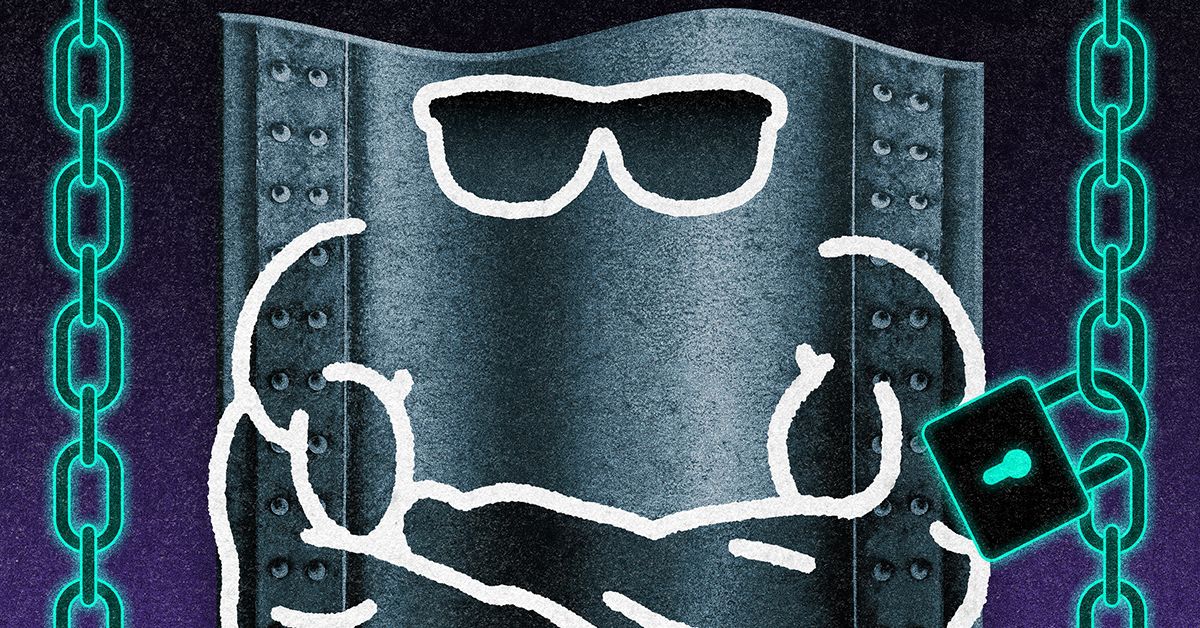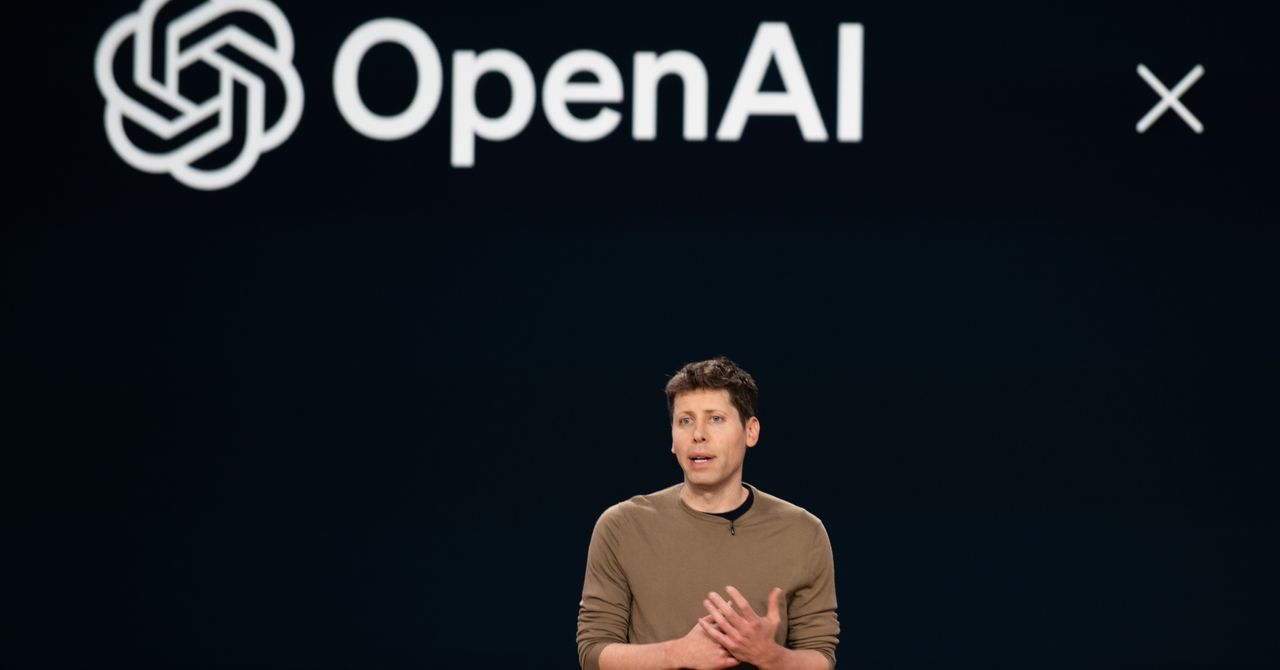Tech
Russian money launderers bought a bank to disguise ransomware profit | Computer Weekly

A billion-dollar money laundering network active in the UK bought a bank in the Central Asian state of Kyrgyzstan to facilitate the washing of profits from cyber crime and other criminal activity, and convert it into cryptocurrency that was used to evade sanctions on Russia in support of the Putin regime’s war on Ukraine, according to the National Crime Agency (NCA).
So-called cash-to-crypto swaps are a core part of the global criminal ecosystem. In 2024, the NCA and its European and North American partners came down hard on two full-service Russian-run money laundering networks, TGR and Smart, which washed money on behalf of multiple ransomware crews, including the likes of Evil Corp, Conti and Ryuk, in an ongoing series of actions dubbed Operation Destabilise.
In the past 12 months, Operation Destabilise has seen 45 suspected money launderers arrested and £5.1m in cash seized. Since its inception, 128 arrests and over £25m have been seized in cash and crypto assets in the UK, plus millions more abroad.
“Today, we can reveal the sheer scale at which these networks operate and draw a line between crimes in our communities, sophisticated organised criminals and state-sponsored activity,” said NCA deputy director for economic crime, Sal Melki.
“The networks disrupted through Destabilise operate at all levels of international money laundering, from collecting the street cash from drug deals, through to purchasing banks and enabling global sanctions breaches.”
The connection into Kyrgyzstan, a former Soviet state sandwiched between Kazakhstan and China, was uncovered in August, when a company linked to TGR ringleader George Rossi, Altair Holding SA, was sanctioned in the UK as part of a crackdown on known Russian efforts to circumvent Western sanctions by exploiting the Kyrgyz financial system.
It can now be revealed that Altair bought a 75% stake in Kyrgyzstan-based Keremet Bank on 25 December 2024. The NCA has subsequently found that Keremet facilitated extensive cross-border payments on behalf of state-owned Promsvyazbank.
Promsvyazbank, which was nationalised by the Russian government in 2018, was also sanctioned by the US and UK following the invasion of Ukraine, and has been accused of links to Russian attempts to rig elections in Moldova through the populist, pro-Russian politician and oligarch Ilon Shor, who also orchestrated the theft of over $1bn from the country’s banking system in 2014.
Shor’s A7 company at one time collaborated with Promsvyazbank on the launch of a rouble-backed cryptocurrency stablecoin, A7A5, and networks linked to the firm have likely been designed to allow cross-border payments to circumvent sanctions in support of Russia’s military-industrial complex, said the NCA.
Beyond ransomware
It was cyber crime, specifically the network’s links to Evil Corp and bitcoin payments made by its victims, that first led the NCA and its partners to the activity, when they spotted the profits of ransomware attacks going into an individual crypto exchange account that was linked to UK-based money launderers it had already identified.
However, the activities of TGR and Smart extend into other areas of organised criminality across the UK, including the drugs and firearms trade and immigration fraud. The NCA would not, however, be drawn at this stage on any involvement in its other investigations into cyber criminal activity or any of the major cyber attacks that have unfolded this year in the UK.
Besides funnelling these funds into propping up Russia’s war on Ukraine – the agency described a “clear thread” between small-time Friday night cocaine deals in UK bars and clubs to Russian missile strikes on Ukrainian civilians – the network also made money available to wealthy Russians living in the West as a concierge service, and even incorporated some of it back into the UK banking system through traditionally cash-rich businesses, such as small building firms.
The identified and arrested individuals linked to money laundered through the network include two Russian nationals who bought cars and vans in the UK, shipped them to Ukraine and sold them to the Ukrainian government, which was unaware it was funding its enemy’s war effort.
Operation Destabilise also ensnared a number of Brits, such as Scottish footballer James Keatings, who investigators witnessed transferring boxes of cash from a van during a June 2024 handover of almost £400,000.
Keatings, a former member of Celtic’s youth development programme who went on to play for both Heart of Midlothian and Hibernian during his career, was jailed for 13 months earlier this year after he admitted possessing and transferring criminal property at Falkirk Sheriff Court.
Like Keatings, many of the network’s UK operatives were mules tasked by the network’s “managers” with driving all over the country to pick up cash from lower-level criminals.
They have been targeted by NCA poster campaigns in locations they frequent, often in motorway service station toilets. The NCA said its objective had been to “make these courier networks sweat”, and it has seen some success in scaring them off.
“Millions of Britons will have seen these messages at service stations, but rest assured, they were not for you,” said Melki. “To the launderers who will have seen them, your choice is simple: either stop this line of work, or prepare to come face to face with one of our officers and the reality of your choices. Easy money leads to hard time.”
Tech
This AI Agent Is Designed to Not Go Rogue

AI agents like OpenClaw have recently exploded in popularity precisely because they can take the reins of your digital life. Whether you want a personalized morning news digest, a proxy that can fight with your cable company’s customer service, or a to-do list auditor that will do some tasks for you and prod you to resolve the rest, agentic assistants are built to access your digital accounts and carry out your commands. This is helpful—but has also caused a lot of chaos. The bots are out there mass-deleting emails they’ve been instructed to preserve, writing hit pieces over perceived snubs, and launching phishing attacks against their owners.
Watching the pandemonium unfold in recent weeks, longtime security engineer and researcher Niels Provos decided to try something new. Today he is launching an open source, secure AI assistant called IronCurtain designed to add a critical layer of control. Instead of the agent directly interacting with the user’s systems and accounts, it runs in an isolated virtual machine. And its ability to take any action is mediated by a policy—you could even think of it as a constitution—that the owner writes to govern the system. Crucially, IronCurtain is also designed to receive these overarching policies in plain English and then runs them through a multistep process that uses a large language model (LLM) to convert the natural language into an enforceable security policy.
“Services like OpenClaw are at peak hype right now, but my hope is that there’s an opportunity to say, ‘Well, this is probably not how we want to do it,’” Provos says. “Instead, let’s develop something that still gives you very high utility, but is not going to go into these completely uncharted, sometimes destructive, paths.”
IronCurtain’s ability to take intuitive, straightforward statements and turn them into enforceable, deterministic—or predictable—red lines is vital, Provos says, because LLMs are famously “stochastic” and probabilistic. In other words, they don’t necessarily always generate the same content or give the same information in response to the same prompt. This creates challenges for AI guardrails, because AI systems can evolve over time such that they revise how they interpret a control or constraint mechanism, which can result in rogue activity.
An IronCurtain policy, Provos says, could be as simple as: “The agent may read all my email. It may send email to people in my contacts without asking. For anyone else, ask me first. Never delete anything permanently.”
IronCurtain takes these instructions, turns them into an enforceable policy, and then mediates between the assistant agent in the virtual machine and what’s known as the model context protocol server that gives LLMs access to data and other digital services to carry out tasks. Being able to constrain an agent this way adds an important component of access control that web platforms like email providers don’t currently offer because they weren’t built for the scenario where both a human owner and AI agent bots are all using one account.
Provos notes that IronCurtain is designed to refine and improve each user’s “constitution” over time as the system encounters edge cases and asks for human input about how to proceed. The system, which is model-independent and can be used with any LLM, is also designed to maintain an audit log of all policy decisions over time.
IronCurtain is a research prototype, not a consumer product, and Provos hopes that people will contribute to the project to explore and help it evolve. Dino Dai Zovi, a well-known cybersecurity researcher who has been experimenting with early versions of IronCurtain, says that the conceptual approach the project takes aligns with his own intuition about how agentic AI needs to be constrained.
Tech
OpenAI Announces Major Expansion of London Office

OpenAI has announced plans to turn its London office into its largest research hub outside of the United States.
The company—which established a UK office in 2023—says it will expand its London-based research team, scooping up talent emerging from leading British universities. It has not indicated how many researchers it will hire.
“The UK brings together world-class talent and leading scientific institutions and universities, making it an ideal place to deliver the important research which will ensure our AI is safe, useful, and benefits everyone,” said Mark Chen, chief research officer at OpenAI, in a statement.
The plans bring OpenAI into direct competition for top research talent with Google DeepMind, the AI lab run by British researcher Demis Hassabis, which is headquartered in London. DeepMind has long-running partnerships with Oxford University and the University of Cambridge, where it sponsors professorships, funds research, and works alongside researchers.
At the latest careers fair at Oxford University, the floor was packed with undergraduates looking for technical roles and recruiters hiring for AI-related positions. “The demand and supply is increasing on both sides, even within a year,” says Jonathan Black, director of the careers service at Oxford University. “To have something like this turn up is a really positive sign.”
OpenAI’s expansion in London could have a sort-of flywheel effect, whereby the researchers it hires early in their careers go on to start new labs in the UK, says Tom Wilson, partner at venture capital firm Seedcamp. “We’ve seen many examples over the years,” he says. “That’s where these kinds of announcements can have even more impact than the initial hires … the second-order effects can be great.”
OpenAI’s team in London will continue to contribute to products like Codex and GPT-5.2, the company says, but will now “own” certain aspects of model development relating to safety, reliability, and performance evaluation.
In a statement, the UK’s science and technology secretary, Liz Kendall, described the announcement as “a huge vote of confidence in the UK’s world-leading position at the cutting edge of AI research.”
The announcement coincides with a push in the UK to scale the nation’s data center and power infrastructure to meet the voracious demand for compute among AI companies, including OpenAI.
Tech
Stay Warm in the Lodge or Half-Pipe with the Best Ski Clothes

Honorable Mentions
During the winter, a whole WIRED crew tests ski clothes almost constantly. Here are a few other items that we like.
Courtesy of REI
Hestra Fall Line 3-Finger Gloves for $190: I’ve long admired Hestra gloves from across the lift line, impressed by the Swedish company’s elegant stitchwork and thoughtful design touches. This was the year I finally got to try a pair for myself, and the Fall Line are exactly what they look like. There are six sizes available so you can get the perfect fit in this glove. The cowhide is buttery smooth and has already broken in a bit with five days’ use. The wrist strap means you never have to fret about dropping your glove from the lift when checking your phone, and they’re very warm without making me sweat. If you do sweat, the lining is removable so you can wash it without damaging the leather. —Martin Cizmar
Courtesy of Crab Grab
Crab Grab Snuggler Mitts for $89: These mini sleeping bags for your fingers are packed full of Primaloft insulation and benefitting from a sherpa fleece lining, they are toasty warm, and with a 15K membrane, impressively waterproof too. All-season mittens with durable construction for under $100? Yes Please!
Courtesy of Mons Royale
Mons Royale Yotei Merino Classic Long Sleeve for $98: As I type this, I’m nowhere near a mountain, but I’m still wearing the Mons Royale Yotei long sleeve top. It is ridiculously comfortable, made from 190-gsm-weight, 100 percent merino wool, and has a mercifully relaxed cut, so I remain warm, but don’t feel like a sausage. On the mountain however, the merino wool works its magic, wicking away sweat—especially on a hike up to some fresh powder—and keeping me comfortable. Paired with a shell and the Patagonia R1 Thermal Hoodie, I’m warm enough during a bitter arctic blast.
Seniq Powder Puff Down Jacket for $498 and Bib for $398: Seniq is another all-women’s outdoor brand that launched in 2024. It’s styled a little more Gen Z, leaning into fun color blocking over the monochromatic look. The Seniq Powder Puff Down Jacket has a dry-touch finish. It’s meant for drier days on the mountain, but a PFC-free DWR coating and YKK AquaGuard zippers do provide water resistance. The asymmetric front zipper helps you avoid chin rub when you have the jacket fully zipped. It also features cool asymmetrical quilting lines, side pockets-in-pockets that provide access to your bib (their bibs have a pocket on the front, so you can get in there without unzipping your jacket), an oversized removable hood, a forearm pass pocket, soft and stretchy wrist gaiters, and a large internal pocket that can absolutely handle a sandwich. This jacket was warm, pillowy, and comforting, like a super-soft hug.
The silky shell bibs are slightly barrel cut, which gives them a flattering shape without being fitted. The adjustable racer back-style straps and low back (with a stretchy waist) also provide a nice shape and breathability. There are two pockets on the front chest, pockets on either leg, two-way zip thigh vents, and a butt zipper for bathroom breaks. These fit easily over my boots, and the instep guards were a nice touch. With a durable three-layer membrane and a 20,000-mm waterproof rating, these will hold up against any and all weather the mountain throws at you. When I wore them on a wet snowy day, they beaded and sloughed off moisture well. —Kristin Canning
Mammut Sender In Hooded Jacket for $259: This puffy hoodie is a great mid-layer for under a shell jacket. The insulation is made from recycled rope scraps, and the outer is coated in wind-resistant PFC-free DWR coating. The hem falls at the hips, and the high collar and tight hood keep most of the face covered. I like wearing this piece under shells for snowboarding, but I know it’ll pull double duty as a comfy hiking and camping jacket, too, so it’s a solid multipurpose investment. It’s exceptionally lightweight and warm, though from a volume standpoint, it is on the bulkier side for a mid-layer and isn’t the most packable piece. —Kristin Canning
Helly Hansen Evolved Air Half Zip for $112: This fleece pullover has a waffle-like texture that traps heat and wicks moisture. With a high zippered collar and cinchable hem, you can adjust the fit to make it more air-tight or breathable. This mid-layer felt wonderfully lightweight while still keeping my toasty. It’s not bulky at all, only a little thicker than a base layer, laid comfortably under my jackets, and moved with me on the mountain. —Kristin Canning
Helly Hansen Lifa Base Layer Long-Sleeve Crew for $115 and Pants for $115: These base layers hit the weight sweet spot; they’re not too thick or thin, but just right. They’re slightly looser than other options on this list, so if you prefer something that isn’t so fitted, these are a great pick (but note that they run long too). These combine merino wool with Helly Hansen’s LIFA fibers, which add more moisture-wicking capabilities. They’re soft, lightweight, warm, and don’t hold onto smells. I love the cute designs and how well they regulate my temperature under insulated jackets and pants. The waist digs in a bit but doesn’t roll, and they stay in place and move well. —Kristin Canning
We have a full guide on how to layer, but here are your essentials.
Base layer: A good set of thermals is essential in the fight against cold, especially when you’re working hard. The best fabrics wick away sweat as you heat up, which helps regulate your temperature. Merino wool is the best at this, but also the most expensive. Synthetic fabrics are getting better, though, and please avoid cotton at all costs, as it gets wet and stays that way, making you cold and uncomfortable.
Mid layer: Whether you choose a hooded fleece or puffer-style jacket, this layer does the bulk of the work in cold conditions. Combined with the base layer, it traps warm air in, while also allowing moisture to be expelled. Synthetic insulation such as Primaloft Gold is brilliant and doesn’t lose its properties if it gets wet. Down jackets offer the best warmth-to-weight ratio, but they don’t pack down as small, and should never get wet. A fleece with an insulated vest is a great option if you really feel the cold.
Jacket: While ski jackets with insulation offer bonus warmth in Arctic-like conditions, for most people a waterproof shell will be enough, as it offers protection from both the snow and the wind. A cold wind will chill you to your bones faster than a bit of wet snow. Ideally choose a jacket with a waterproof membrane such as Gore-Tex (make sure it is free from PFAS, or forever chemicals), but also check for taped seams for added waterproofing, plus plenty of pockets for snacks and lift passes, and wrist cuffs and ski skirts to help keep out the snow.
Socks: As with your base layer, socks keep you warm and maintain your temperature when you’re building up a sweat. Natural fabrics work well, but a blend of merino wool with synthetic stretchy fibers is the way to go, as they stay up better and can be used for more than a day. Avoid cotton again, and never wear two pairs, as you’ll almost certainly get colder feet.
Gloves: You’ll be surprised by how wet ski gloves get when it’s snowing, even if you don’t fall very often. As a result, waterproof options work best in most cases, although well-made leather designs can be almost as waterproof as a pair with Gore-Tex. Mittens are generally warmer than gloves, but what you gain in toasty fingers you lose in dexterity. Check out our Best Ski Gloves and Mittens guide for more information.
Waterproofing and breathability ratings: Waterproofing is measured with a hydrostatic head rating, or HH. That means if you put a 1-inch, endlessly long square tube on top of the fabric, you could pour 20,000 millimeters of water before it would seep through. Breathability is rated in how many grams of vapor per square meter can can pass through the fabric in 24 hours.
I’ve been reviewing winter sports gear for more than 15 years. In that time, I have worn an untold number of jackets, pants, mid-layers, thermals, gloves, and mittens. I called on industry experts and professional skiers, and solicited opinions from fellow winter sport enthusiasts on the WIRED team. While a basic fit check can be done in the office, nothing replaces on-mountain testing in variable conditions. We put in the time on various trips to the French Alps, as well as in resorts in Vermont, Colorado, Arizona, and Oregon.
Power up with unlimited access to WIRED. Get best-in-class reporting and exclusive subscriber content that’s too important to ignore. Subscribe Today.
-

 Tech7 days ago
Tech7 days agoA $10K Bounty Awaits Anyone Who Can Hack Ring Cameras to Stop Sharing Data With Amazon
-

 Fashion6 days ago
Fashion6 days agoICE cotton ticks higher on crude oil rally
-

 Business6 days ago
Business6 days agoUS Top Court Blocks Trump’s Tariff Orders: Does It Mean Zero Duties For Indian Goods?
-

 Business5 days ago
Business5 days agoEye-popping rise in one year: Betting on just gold and silver for long-term wealth creation? Think again! – The Times of India
-

 Tech1 week ago
Tech1 week agoDonald Trump Jr.’s Private DC Club Has Mysterious Ties to an Ex-Cop With a Controversial Past
-

 Entertainment5 days ago
Entertainment5 days agoViral monkey Punch makes IKEA toy global sensation: Here’s what it costs
-

 Sports6 days ago
Sports6 days agoBrett Favre blasts NFL for no longer appealing to ‘true’ fans: ‘There’s been a slight shift’
-

 Entertainment6 days ago
Entertainment6 days agoThe White Lotus” creator Mike White reflects on his time on “Survivor





-Reviewer-Photo-SOURCE-Kristin-Canning.jpg)




